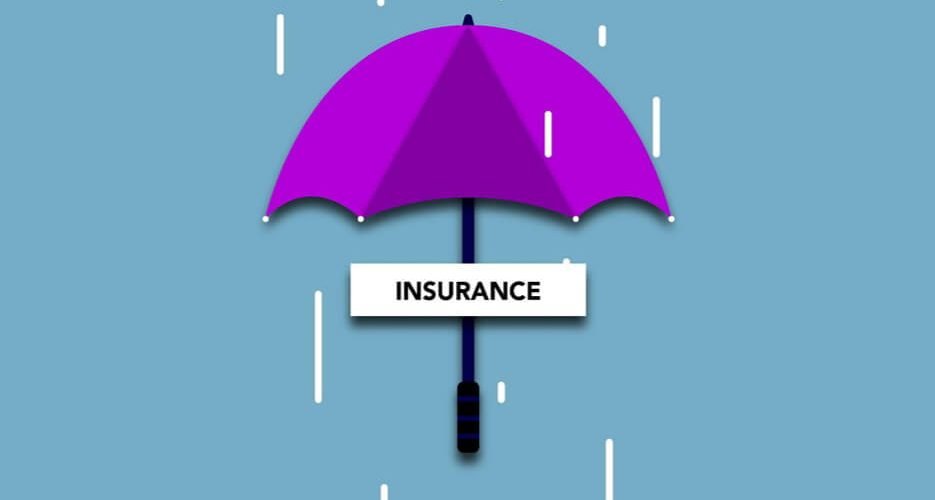Are you a property owner or landlord? If so, then it’s essential that you’re aware of the benefits of umbrella insurance. Umbrella insurance can provide you with extra protection in the event that something unexpected happens. This guide will give you all the information you need to know about umbrella insurance, including what it is and how it can benefit you. So, whether you’re just getting started with owning property or are looking for extra coverage, this guide is for you!
Table of Contents
What is Umbrella Insurance for a rental property?
Umbrella insurance for rental property is a form of insurance that can provide additional protection against liability claims above and beyond the coverage included in your renter’s insurance policy. It can help fill gaps in coverage and provide extra peace of mind, especially if you’re renting in a high-risk area or have valuable possessions.
Umbrella policies are typically very affordable, making them a great way to If you have any questions about whether or not an umbrella policy is right for you, be sure to speak with your agent or insurer.
How A Umbrella Policy Works – Process Explained
An umbrella policy for rental property is a form of insurance that can provide coverage above and beyond the limits of your normal homeowners or renters insurance policy. Umbrella policies typically have relatively low premiums, making them an affordable way to protect yourself from potential lawsuits or other financial damages.
Umbrella policies can cover a variety of expenses, including medical bills, legal fees, and property damage. They can also provide protection against certain types of personal liability, such as defamation or libel. If you’re renting out your property to tenants, an umbrella policy can be an important safeguard against potentially costly problems down the road.
If you own a rental property and want to be insured against any potential damage the property may suffer, you can purchase an umbrella policy. For example, if someone were to injure themselves on your property, an umbrella policy would help cover the costs associated with that injury.
What does the Umbrella Policy cover?
This type of policy helps to cover the costs of medical bills and legal fees if a tenant or guest is seriously injured due to the property not being properly maintained. For example, if an electrical system is not up to code and a tenant is shocked as a result, the umbrella policy can help to cover the resulting medical bills and legal fees. Without this type of protection, the costs of an accident can quickly become overwhelming, so it’s important to make sure that you’re covered.
When a property owner is sued by a third party, such as the next-door neighbour, for harm caused by the tenant, an umbrella policy can help. It can help to cover the costs of legal fees, judgments, and settlements. In some cases, it may even provide coverage for personal injuries sustained by the tenant.
As a landlord, you are responsible for maintaining a safe and secure property for your tenants. However, there are some risks that are beyond your control, such as the actions of trespassers and squatters. If someone is injured while on your property, they may try to sue you for damages. An umbrella policy for rental property can help to protect you in this situation. The policy will provide coverage in the event that someone is injured while on your property, regardless of whether they are a tenant or a trespasser. In addition, the policy can help to cover the costs of any legal fees associated with the case. As a result, an umbrella policy can provide peace of mind and financial protection in the event that someone is injured while on your property.
Rental property landlords often purchase an umbrella policy to help cover costs if a tenant or guest is injured in the common area of the property and sues the landlord. Common areas can include the laundry room, parking lot, or any other shared space on the property. An umbrella policy can help cover the costs of attorney fees, court costs, and damages if the landlord is found liable.

Items an Umbrella Policy does not cover
An umbrella policy is a liability policy, which means it will provide coverage for any damage or injuries that occur on the property for which you are liable. However, the policy will not provide coverage for any damage to the property itself. In order to protect your investment, it is important to purchase a separate policy that covers the damage to the property. This way, you can be sure that you will be covered in the event of any damages.
Many landlords are unaware that umbrella policies exclude coverage for damage intentionally caused by the landlord or a related party. This exclusion is designed to prevent landlords from using their policy to cover damages resulting from their own negligence or willful misconduct. In order to be covered, the damage must be accidental and not attributable to any action on the part of the landlord. For instance, if a tenant accidentally starts a fire that damages the rental property, the landlord’s umbrella policy would likely cover the resulting damages. However, if the landlord purposely started the fire, the policy would not provide coverage. Landlords should be aware of this exclusion when considering whether to purchase an umbrella policy for their rental property.
The policy will also not provide coverage for any business activities, so if you’re renting out property through an LLC, you’ll need to purchase a commercial policy.

The typical cost of an Umbrella Policy
Rates for umbrella policies start around $250 per year for $1 million of coverage, making them an affordable way to protect yourself from potential lawsuits. Keep in mind that you must carry a certain amount of liability insurance on your auto or homeowners policy before you can purchase an umbrella policy. Umbrella policies are also a good idea if you have assets that could be at risk in the event of a lawsuit, such as a vacation home or investment property.
Why Is Umbrella Insurance For Rental Properties Essential?
Rental property insurance is essential for landlords because it protects the property in case of damage, theft, or other unforeseen circumstances. Umbrella liability insurance provides an extra layer of protection for landlords in the event that damages exceed the limits of their regular insurance policy.
Landlords should consider umbrella insurance if they own multiple rental properties, as this type of policy can provide additional coverage if one of the properties is damaged. It’s also important to note that umbrella liability insurance does not replace standard renters or homeowners insurance policies; it simply provides additional protection in the event that damages exceed the limits of those policies.
Excess Liability Policy v/s Umbrella Policy
Excess liability policies and umbrella policies both provide excess coverage above your standard liability limits. An excess liability policy will provide additional coverage for general liability, product liability, and automobile liability. An umbrella policy will provide additional coverage for all of the types of exposures mentioned in an excess policy, as well as personal injury protection (PIP) and property damage protection.
So which one should you buy? The answer depends on a few factors, such as the amount of coverage you need and your budget. Generally speaking, an umbrella policy is a better option if you want broader coverage than what is provided by an excess liability policy. However, an excess policy may be a better option if you are looking for specific coverages that are not
Final Thoughts
Rental properties come with a unique set of risks that standard homeowners insurance policies don’t always cover. That’s where umbrella insurance comes in – it provides additional protection for your rental property and everything inside of it. Umbrella policies are affordable, and they can be a lifesaver if something happens. Make sure you have adequate coverage for your rental property by getting an umbrella policy today.





